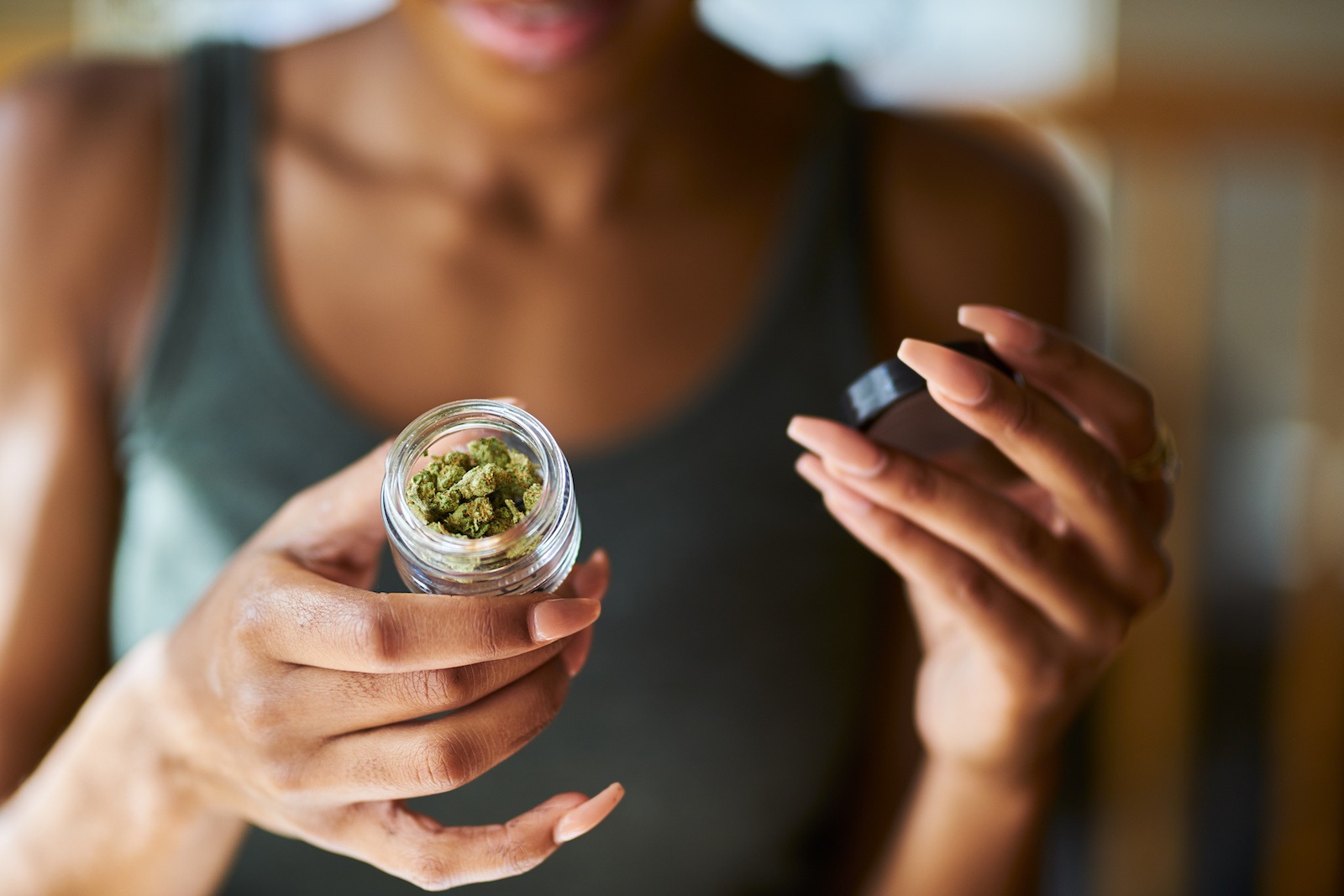Addiction | 6 min read
Weed Pills: Side Effects, Risks, & How To Spot An Addiction To Weed
Medically Reviewed By

On September 07, 2022
Written By
On September 7, 2022

Most people know what weed is. But, with legalization in some areas and more people turning to weed recreationally or for medical reasons, there are many more ways to take weed than there used to be.
That includes edibles, tinctures, topical preparations for weed, and things like weed pills, also called THC pills.
But, like other drugs, there can be differences in how weed acts in your body, how much you take, and the side effects of the drug.
That means that if you’re considering using weed pills and other preparations of weed, it’s important to be informed about them. Important information includes side effects, risks, and whether certain preparations increase the chances of developing an addiction to the drug.
If you’re here to learn more about weed pills or have questions about rehab for weed, you’re in the right place. Let’s talk about the differences between weed pills and other forms of marijuana, how they work in your body and brain, and the side effects of the drug.
What Is The Difference Between Weed Pills & Other Forms Of Marijuana?
In terms of what’s contained in weed pills and other forms of marijuana, some differences depend on how the pill is created, the concentration, and how long it takes for the drug to take effect.
Here are some of the most important differences between weed pills and other forms of marijuana:
Dosage:
One of the biggest differences between weed pills and other preparations is the dose control you get with weed pills.
Compared with smoking, you have much more control over how much THC you consume. However, THC concentrations might be much higher in pills, depending on what kind of pills you use.
Weed pills are comparable in dose control to edibles, except that edibles are made in batches, and it can be hard to control the dose in each portion truly. However, you can generally count on the dose being within a limited range, usually about no more than 1-2 mg per dose.
Compare that with weed flowers or dabs; you have much more precise control.
The downside is that, like edibles, weed pills can make it easy to get far more THC than you want or need to get your desired effects. That can increase your tolerance and make you more likely to develop an addiction to the drug.
No Need To Smoke
Another important difference is that you don’t need to smoke weed pills, which means that the weed is less likely to cause respiratory problems, even long-term use.
Smoke can be damaging and irritating to your lungs and respiratory system. Weed smoke is considered less harmful than cigarette smoke, but that doesn’t mean it’s safe or good for you.
Purity
Another big difference with weed pills is that you often have a choice of the kind of weed you want to consume. The pills may contain refined forms of weed that are only THC, separated from the other cannabinoids and chemicals in the plant.
You may also find weed pills that are whole plant that only contains CBD or other preparations with limited but not 100% pure contents.
Effective Time
Ingesting weed often makes weed last longer in your system than smoking it would, which can mean that taking weed pills gives you a longer high.
That might be a good thing for people using weed for medical reasons. However, for people who are using weed for recreational reasons or because they have a substance use disorder, the longer duration of weed pills can be detrimental, especially if you aren’t expecting it to last longer when you take one for the first time.
It takes Longer To Kick In
Another big difference is that taking a weed pill won’t have immediate effects like smoking, and there aren’t as many fast-acting weed pills as fast-acting edibles. That can lead to a very different timeline from when you take the pill compared to other weed products.
What Weed Pills Do To Your Brain And Body
Knowing how weed interacts with your body and brain is critical if you want to understand weed use, and it can also help evaluate if you have an addiction.
The first thing you need to know is that the chemicals in weed, including THC and CBD, are cannabinoids, similar in structure to chemicals naturally found in your body called endocannabinoids. When you use weed, the cannabinoids in the drug interact with your body’s endocannabinoid system, which causes a wide range of effects, some of which are felt and some of which happen without noticeable feelings.
Marijuana use has both short and long-term effects on your brain and body. However, you are more likely to have long-term effects when you use marijuana more frequently or in higher doses.
The chemicals in weed don’t replace the ones in your endocannabinoid system, but they flood those systems, sending them into overdrive.
Different cannabinoids have different effects. For instance, CBD is reported as having a calming effect on your body, which is why it’s sometimes used for pain and anxiety. In contrast, THC is the cannabinoid that creates the high feeling associated with weed.
Side Effects Of Using Weed Pills
The side effects of weed pills vary slightly from regular weed, depending on the preparation. If your weed pills aren’t an isolate, you should expect all the same side effects as regular weed, potentially a little stronger than normal.
Short-term effects can include:
- Altered sensation
- Altered sense of time
- Altered mood
- Impaired memory
- Difficulty thinking or problem solving
- Hallucinations (higher risk at high doses)
- Psychosis (higher risk at high doses)
- Delusions (higher risk at high doses)
- Increased appetite
- Dry eyes
- Dry nose/mouth/throat
- Nausea
- Vomiting
- Drowsiness
- Fatigue
Side effects like hallucinations, psychosis, and delusions may also turn into long-term side effects with the regular use of marijuana and marijuana products.
Additionally, weed users have an elevated risk of developing schizophrenia compared with people who don’t use weed.
Respiratory problems like elevated mucus production and coughing or yawning more than normal have also been reported, but they are probably less likely to happen when you’re taking weed pills instead of smoking.
Are You Addicted To Weed Pills? Signs Of An Addiction To Weed
Addiction to weed is less likely than other drugs like opioids, but it can and does happen and can be difficult to cope with. Many people are addicted without recognizing that they have an addiction partly because they are looking for physical symptoms of addiction that may not be there when you’re addicted to weed.
Here are some of the most common signs of weed addiction:
- Being irritable between doses.
- Feeling like you need to take weed all the time.
- Feeling like you need to take many more weed pills than you used to.
- Feeling like you need to take weed to be okay (without a medical reason).
- Feeling like you need to hide your weed use.
You may also feel achy or upset when you don’t have weed or like you’re just counting the time until you can take weed again.
It’s also important to remember, since more and more people are using weed for medical reasons, like relief from pain or the symptoms of epilepsy, that taking it for medical reasons can sometimes look like an addiction – but it may still be the best way to control your symptoms.
If you are a medical marijuana user and are concerned about addiction, it’s a good idea to talk with your primary care doctor or prescribing doctor. They may have more information about alternatives and risks of addiction and can help you decide when and if using weed is a good option for you and your condition(s).
How To Get Help If Addicted To Weed Pills
If you realize that you or a loved one are addicted to weed pills, the good news is that there is help for you, and you don’t have to deal with this problem on your own.
There are a lot of supports out there, and there is medical help that can help you overcome your addiction and live a happy and healthy life.
The first step in dealing with addiction is always recognizing that you have an addiction. So, if you’ve already made that realization, congratulations! You’re already on the path to recovery.
The next step is figuring out what you want to do about your addiction. Withdrawal from weed pills and other weed products is usually less severe and safer than withdrawal from other illicit or recreational drugs. That means some people may be more successful at home than dealing with other addictions.
However, that doesn’t mean stopping weed at home is right for everyone. You may also consider looking for local support systems or seeing what programs a drug addiction treatment center offers.
If you think a treatment center may be right for you and are serious about overcoming an addiction to weed pills, Ascendant NY is here to help. Contact us to learn more about our programs, get answers to your questions, or start the intake process and overcome your addiction.
Ascendant New York Editorial Guidelines
Here at Ascendant New York, we understand the importance of having access to accurate medical information you can trust, especially when you or a loved one is suffering from addiction. Find out more on our policy.
- Ryle S. THC Pills: Benefits, Risks, Uses, and How to Dose. Leafwell. Accessed August 18, 2022. https://leafwell.com//blog/thc-pills/
- National Institute on Drug Abuse. Is marijuana addictive? National Institute on Drug Abuse. Published July 2020. Accessed August 18, 2022. https://nida.nih.gov/publications/research-reports/marijuana/marijuana-addictive
- National Institute on Drug Abuse. Cannabis (Marijuana) DrugFacts. National Institute on Drug Abuse. Published December 24, 2019. Accessed August 18, 2022. https://nida.nih.gov/publications/drugfacts/cannabis-marijuana





